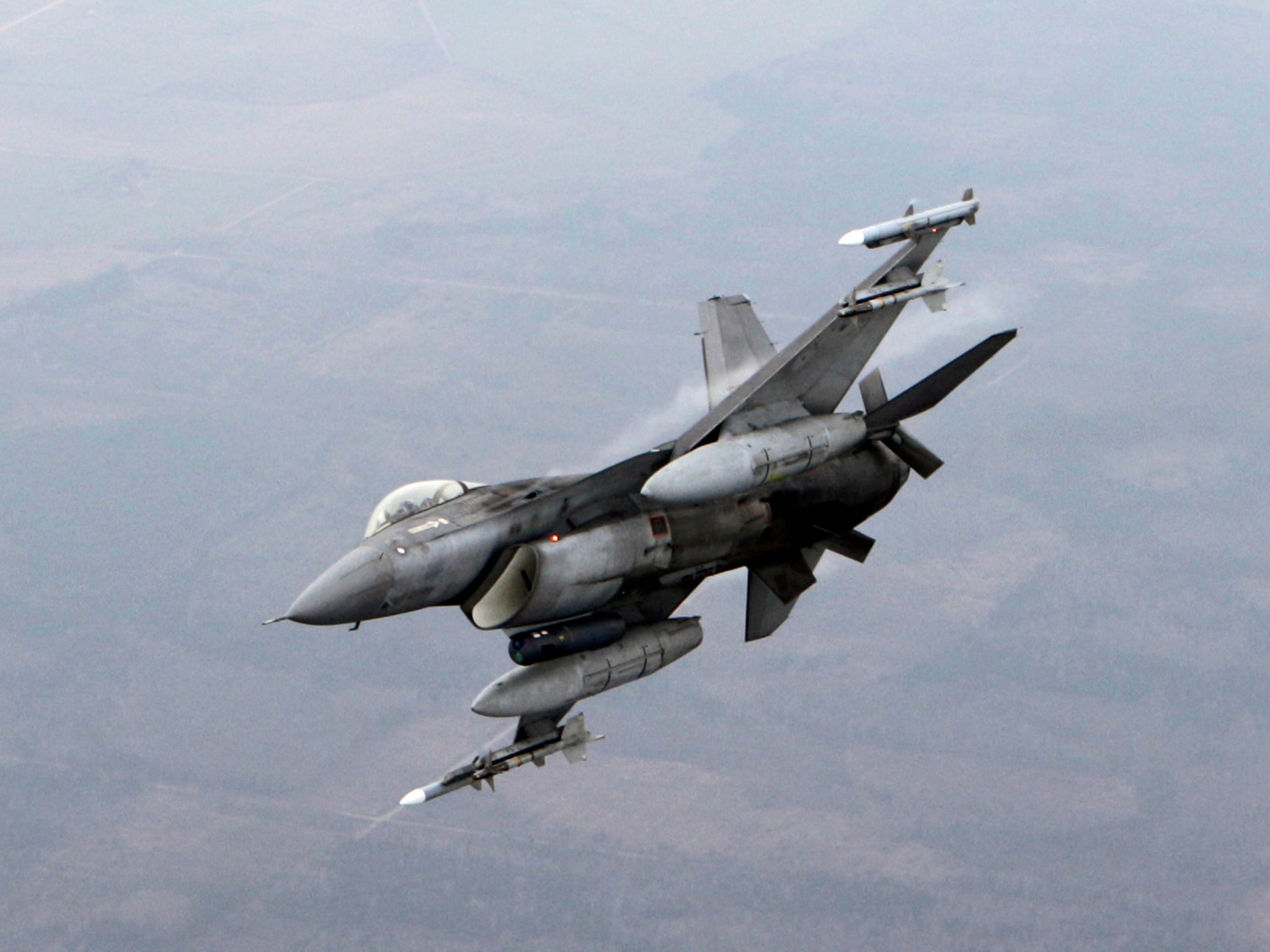Donald Trump administration to drop human rights conditions before selling F-16 fighter jets to Bahrain
Congress unlikely to block deal due to support of Republican majority

Your support helps us to tell the story
From reproductive rights to climate change to Big Tech, The Independent is on the ground when the story is developing. Whether it's investigating the financials of Elon Musk's pro-Trump PAC or producing our latest documentary, 'The A Word', which shines a light on the American women fighting for reproductive rights, we know how important it is to parse out the facts from the messaging.
At such a critical moment in US history, we need reporters on the ground. Your donation allows us to keep sending journalists to speak to both sides of the story.
The Independent is trusted by Americans across the entire political spectrum. And unlike many other quality news outlets, we choose not to lock Americans out of our reporting and analysis with paywalls. We believe quality journalism should be available to everyone, paid for by those who can afford it.
Your support makes all the difference.The Donald Trump administration has told Congress it plans to approve a multibillion-dollar sale of F-16 fighter jets to Bahrain without the human rights conditions imposed by the Obama administration.
If finalised, the approval would allow the Gulf island to purchase 19 of the jets from Maryland-based Lockheed Martin, plus improvements to other jets in Bahrain's fleet.
Though Congress has opportunities to block the sale, it is unlikely it will act to do so, given the Republican majority's strong support for the sale.
The decision is the latest signal that the Trump administration is prioritising support for Sunni-led countries seen as critical to opposing Iran's influence in the region over human rights issues that President Barack Obama had elevated.
Under Mr Obama, the US withdrew approval before the deal was finalised because it said Bahrain hadn't taken steps it had promised to improve human rights.
Senate Foreign Relations Committee Chairman Bob Corker's office said the committee was told Wednesday by the State Department that it plans to proceed with the sale. The State Department declined to comment.
The notice triggers a 40-day "consultation" period in which committee staff can review a draft of the Bahrain approval, ask questions about the sale and raise any concerns. Then the State Department will send a formal notification to Congress, setting off a final, 30-day review period, during which Congress could pass a joint resolution or take other steps to stop the sale.
Lockheed had lobbied strenuously for the sale's approval, even as rights groups and pro-democracy activists urged the administration not to jettison human rights conditions.
Brian Dooley of the Washington-based group Human Rights First said decoupling the sale from such conditions would "encourage further repression" and fuel instability during a tense period for Bahrain.
"The sale will send exactly the wrong signal to the dictatorship—that the White House thinks the political crackdown is not just morally acceptable but also not dangerous, when in fact it's what's fuelling the country's instability," Mr Dooley said.
But Mr Corker, a Republican, praised the move and said the caveats would have been "unprecedented and counterproductive" for security and human rights.
"There are more effective ways to seek changes in partner policies than publicly conditioning weapons transfers in this manner," Mr Corker said in a statement.
Bahrain, home to the US Navy's 5th Fleet and an under-construction British naval base, is a predominantly Shiite island off the coast of Saudi Arabia ruled by a Sunni monarchy. Government forces, with help from US allies Saudi Arabia and the United Arab Emirates, crushed the 2011 uprising by Shiites and others who sought more political power.
Among the steps the Obama administration had sought from Bahrain was the release of Nabeel Rajab, a famed human rights activist who helped lead the 2011 protests.
Mr Rajab, whose trial has been repeatedly delayed, awaits sentencing on a charge of spreading "false news" via Twitter over his posts about the ongoing Saudi-led war in Yemen, as well as allegations of torture by authorities at a local prison.
The State Department said as recently as this week that it was calling for Mr Rajab's release. The US has said Bahrain lacks evidence against him.
Since the beginning of a government crackdown nearly a year ago, activists have been imprisoned or forced into exile. Bahrain's main Shiite opposition group has been dismantled. Lawmakers recently approved military tribunals for civilians while its feared domestic spy agency regained some arrest powers. Independent news gathering on the island also has grown more difficult.
Meanwhile, a series of attacks, including a January prison break, have targeted the island. Shiite militant groups have claimed some of the assaults. Bahrain has accused Iran's Revolutionary Guard of training and arming some militants, something the Shiite regional power has dismissed as a "futile and baseless lie."
Bahrain's government and Lockheed could not be immediately reached for comment.
AP
Join our commenting forum
Join thought-provoking conversations, follow other Independent readers and see their replies
Comments